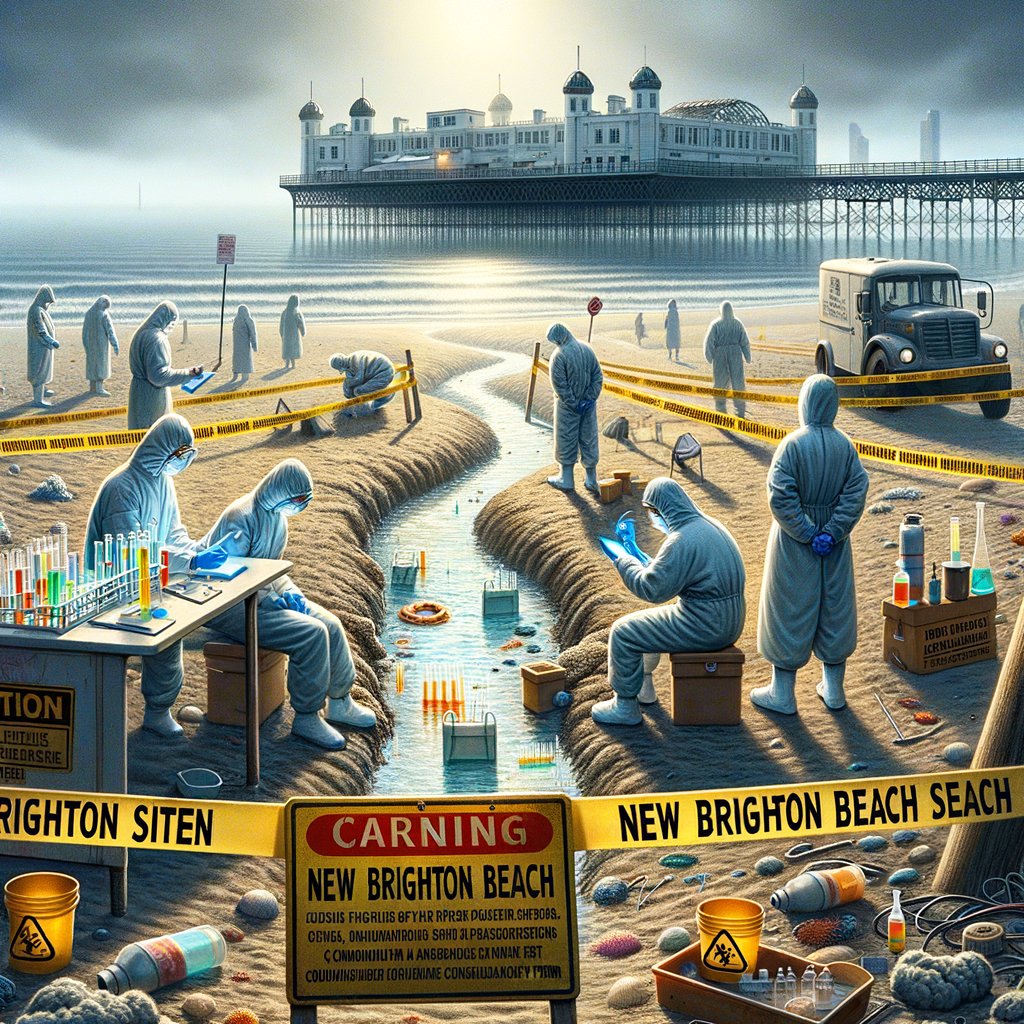Image created by AI
Public Health Alert: Hazardous Water Conditions at New Brighton Beach in Gqeberha
Residents and visitors of Nelson Mandela Bay are being cautioned against using the waters of New Brighton Beach after a recent study found dangerous levels of contamination. The ASC Public Health and Food Safety consultancy firm conducted comprehensive water quality tests in November, revealing alarmingly high concentrations of E.coli bacteria, indicative of fecal contamination likely from untreated sewage.
This alarming discovery led to immediate action by municipal authorities, with New Brighton Beach being officially closed to the public on December 14. The spread of contaminants is reportedly exacerbated by outdated and malfunctioning local infrastructure, responsible for direct discharges of untreated sewage into the beach’s vicinity.
Mthokozisi Nkosi, a representative from ASC, emphasized the severe health risks associated with exposure to such contaminated waters. "Contact with the contaminated water at New Brighton Beach poses a significant health risk and could result in contracting diseases such as diarrhea, dysentery, and typhoid fever," Nkosi stated. He further highlighted the strong scientific connection linking fecal bacteria levels in water and the incidence of gastrointestinal illnesses among water users.
The Nelson Mandela Bay Municipality has yet to issue a formal response or provide a timeline for the resolution of this critical public health concern, leaving the reopening date of New Brighton Beach uncertain. In the meantime, local officials and health experts strongly advise the public to heed the warnings and avoid any contact with the water at the affected beach.
This environmental and public health emergency underscores the urgent need for infrastructure upgrades and enhanced monitoring of water quality to prevent similar incidents in the future. While the community awaits further information and action from municipal authorities, the public is urged to stay informed and prioritize health and safety by keeping away from the contaminated areas.










